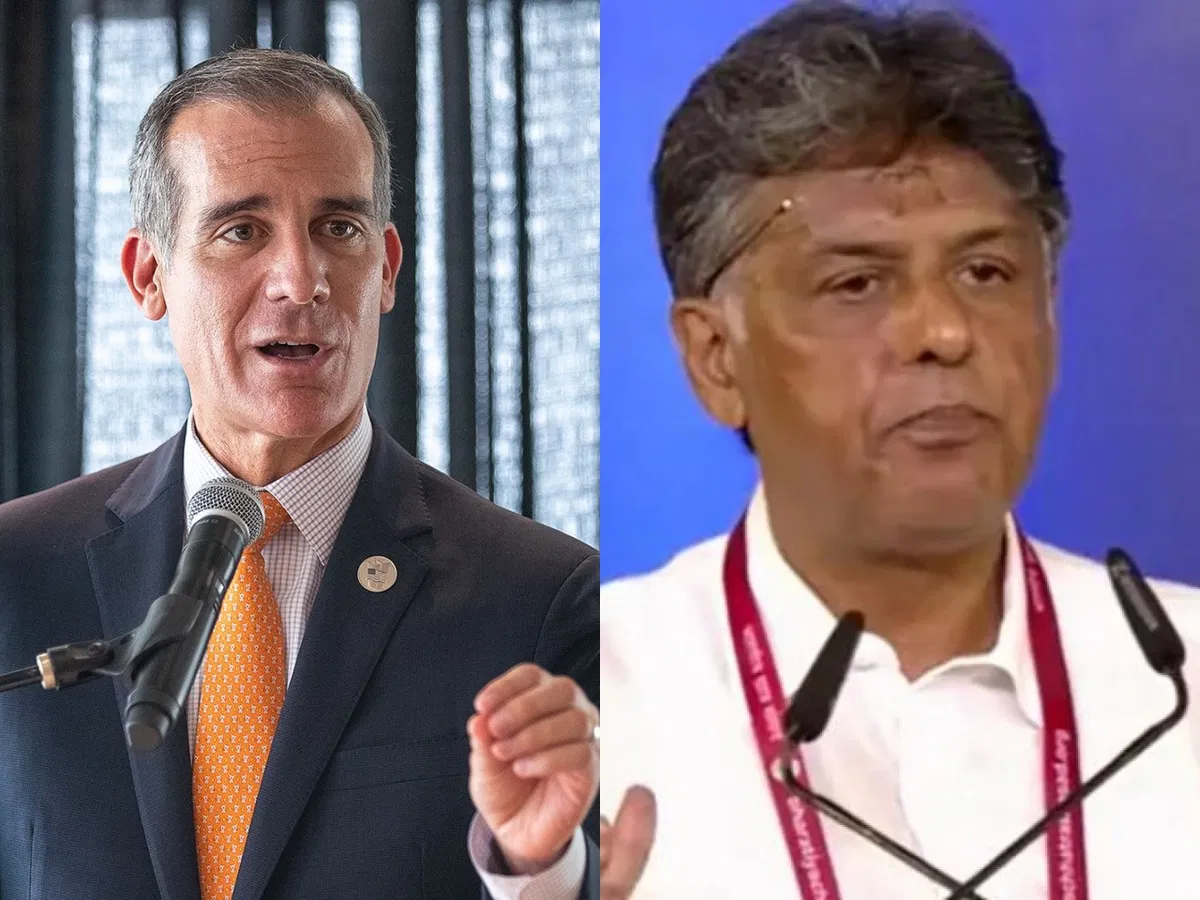Assam: In a significant development, Assam Chief Minister Himanta Biswa Sarma announced on Monday the possibility of lifting the controversial Armed Forces (Special Powers) Act (AFSPA) from the entire state of Assam by the end of this year. The announcement came during his address to the commandants of battalions of the Assam Police at Dergaon, marking a potential milestone in the state’s security landscape.
The Chief Minister’s office issued a statement, shared by Sarma on his official Twitter account, highlighting the potential timeline for the removal of AFSPA. According to the statement, the process aims to facilitate the replacement of Central Armed Police Forces (CAPFs) with Assam Police battalions, while ensuring that the presence of CAPFs, as mandated by law, will continue to be in place.
AFSPA grants extensive powers to security forces deployed in “disturbed areas,” allowing them to conduct searches, seizures, arrests without warrants, and use firearms on mere suspicion, with certain immunities. Currently, AFSPA is applicable in eight districts of Assam, namely Tinsukia, Dibrugarh, Charaideo, Sivsagar, Jorhat, Golaghat, Karbi Anglong, and Dima Hasao.
The potential removal of AFSPA from the entire state signifies a sig nificant step towards normalcy and restoration of peace in Assam. It reflects the government’s commitment to creating an environment conducive to civilian administration and local law enforcement agencies taking charge of security responsibilities.
The decision to lift AFSPA comes as a result of the government’s assessment of the prevailing security situation in Assam. The efforts to gradually remove AFSPA highlight the improved law and order conditions in the state, as well as the government’s confidence in the capabilities of the Assam Police battalions to shoulder the responsibility of maintaining public order.
Major Breakthrough: Assam CM Himanta Biswa Sarma Announces Potential Removal of AFSPA from Entire State by End of 2023
The removal of AFSPA will not compromise the safety and security of the state or its citizens. The government remains committed to ensuring that adequate security measures are in place to protect the people and maintain peace. The presence of CAPFs will be strategically maintained, conforming to the legal requirements and addressing any potential security challenges that may arise.
This significant development reflects the government’s focus on striking the right balance between security requirements and the aspirations of the people. By gradually phasing out AFSPA, the government aims to restore normalcy, promote confidence among the general public, and facilitate the growth and progress of Assam.
The potential removal of AFSPA from the entire state will have far-reaching implications. It will not only empower the local law enforcement agencies but also instill a sense of trust and harmony among the people. The move is a testament to the collective efforts of the government, security forces, and the people of Assam in fostering an environment of peace, stability, and inclusive development.
The decision to lift AFSPA is a reflection of the government’s commitment to upholding human rights and ensuring the well-being of the citizens. It recognizes that a balanced approach to security and governance is vital for the overall progress of the state. The removal of AFSPA will provide an opportunity for the state’s law enforcement agencies to enhance their capabilities and strengthen the bond between the administration and the people.
The potential timeline for the removal of AFSPA is a testament to the government’s proactive approach and determination to address the concerns of the people. It underscores the significance of a participatory and consultative process, wherein the government takes into account the feedback and aspirations of various stakeholders.
As the government progresses with the potential removal of AFSPA, it is crucial to maintain transparency and ensure effective communication with the public. Regular updates on the process and its implications will help build trust and understanding among the citizens.
The potential removal of AFSPA from the entire state of Assam marks a momentous step forward. It signifies the government’s commitment to establishing a secure and harmonious environment while strengthening the capabilities of the state’s law enforcement agencies. This historic decision paves the way for a brighter and more peaceful future for Assam and its people.
As the potential removal of AFSPA from Assam progresses, it is essential for the government to ensure a smooth transition and address any concerns that may arise. Open and transparent dialogue with all stakeholders, including security forces, local communities, and human rights organizations, will be crucial in navigating this significant change.
The government must also put in place comprehensive measures to safeguard the rights and safety of the people. This includes providing adequate training and resources to the Assam Police battalions who will take on increased responsibilities in maintaining public order. It is important to ensure that they are well-equipped to handle the new challenges that may emerge in the absence of AFSPA.
Simultaneously, efforts should be made to engage with the local communities and build trust between law enforcement agencies and the residents. Community-oriented policing strategies, such as fostering positive relationships and encouraging community participation, can help bridge the gap between the authorities and the people they serve. This will not only enhance the effectiveness of law enforcement but also contribute to the overall well-being of the community.
Furthermore, the government should closely monitor the security situation during the transition period. Regular assessments and evaluations will be crucial in identifying any emerging threats or areas that may require additional attention. Flexibility in the approach and the ability to adapt to changing circumstances will be key in ensuring a seamless transition.
The removal of AFSPA should also be accompanied by efforts to address the root causes of conflict and unrest in Assam. Socio-economic development, employment opportunities, and addressing grievances of marginalized communities are essential in building a foundation for long-term peace and stability. A comprehensive approach that encompasses not just security measures but also socio-political initiatives will contribute to lasting peace in the region.
While the potential removal of AFSPA brings hope for a more peaceful and inclusive Assam, it is important to remain vigilant and proactive in addressing any potential security challenges that may arise. The safety and well-being of the people should always remain a top priority.
In conclusion, the potential removal of AFSPA from Assam represents a significant milestone in the state’s journey towards peace, security, and development. It is a testament to the government’s commitment to upholding human rights, fostering trust, and empowering local law enforcement agencies. By approaching this transition with careful planning, effective communication, and a focus on community engagement, Assam can pave the way for a brighter and more prosperous future for its citizens.
Moreover, the potential removal of AFSPA from Assam carries broader implications beyond the state’s borders. It sends a positive message to the entire nation and the international community, showcasing the government’s commitment to upholding human rights and promoting peace in conflict-affected areas.
The removal of AFSPA will not only have a tangible impact on the lives of the people in Assam but also contribute to the overall perception of the state. It will help create an environment conducive to investment, tourism, and economic growth. Investors and businesses are more likely to be attracted to regions where peace and stability prevail, leading to job creation and improved living standards for the residents.
Furthermore, the removal of AFSPA can foster a sense of empowerment among the local population. It will enable them to exercise their rights freely, without the fear of arbitrary detention or abuse of power. This newfound freedom can contribute to a more participatory and inclusive democracy, where citizens actively engage in shaping the future of their communities.
However, it is important to recognize that the potential removal of AFSPA does not imply a complete absence of security challenges. Assam, like any other region, may still face sporadic incidents that require swift and efficient responses. Therefore, it is imperative for the government to ensure that the Assam Police battalions are well-trained, well-equipped, and adequately supported to maintain law and order effectively.
 Additionally, the government should focus on implementing comprehensive strategies for conflict resolution and addressing the underlying causes of unrest in the state. Socio-economic development initiatives, promotion of inclusive governance, and addressing historical grievances will be crucial in building lasting peace and stability.
Additionally, the government should focus on implementing comprehensive strategies for conflict resolution and addressing the underlying causes of unrest in the state. Socio-economic development initiatives, promotion of inclusive governance, and addressing historical grievances will be crucial in building lasting peace and stability.
It is also important to emphasize the need for continued vigilance in ensuring the protection of human rights during the transition period. Robust mechanisms for accountability and oversight should be in place to prevent any potential abuses of power and to address any violations promptly and effectively.
In conclusion, the potential removal of AFSPA from Assam represents a significant step forward in the state’s journey towards peace, stability, and development. It is a testament to the government’s commitment to promoting human rights, empowering local law enforcement agencies, and addressing the aspirations of the people. By approaching this transition with caution, inclusivity, and a focus on sustainable peacebuilding, Assam can set a positive example for other regions facing similar challenges. The potential removal of AFSPA has the potential to transform Assam into a beacon of peace, prosperity, and social harmony.
The potential removal of AFSPA from Assam marks a significant turning point in the state’s history, carrying immense potential for positive change and transformation. This decision holds the promise of a future where the people of Assam can live without the shadow of extraordinary security measures and experience the full exercise of their fundamental rights and freedoms.
By envisioning a state without AFSPA, the government demonstrates its commitment to promoting peace, justice, and the rule of law. It represents a departure from the past and a determination to create an environment where dialogue, reconciliation, and community engagement take precedence over militarized approaches. This shift in mindset has the power to foster trust, harmony, and social cohesion among the diverse communities of Assam.
The removal of AFSPA from Assam sends a powerful message to the rest of the country and the world. It showcases the government’s resolve to address the grievances and aspirations of the people through peaceful means and inclusive policies. This progressive step holds the potential to inspire similar changes in other regions grappling with similar security challenges, thereby contributing to the overall peace and stability of the nation.
As AFSPA is lifted from the eight districts of Assam where it currently applies, it is essential to ensure a smooth and seamless transition. This entails comprehensive planning, effective coordination between security forces and local authorities, and the establishment of robust mechanisms to prevent any security vacuums. Simultaneously, it is crucial to build the capacity of the Assam Police battalions, equipping them with the necessary resources, skills, and training to effectively maintain law and order while upholding human rights standards.
The potential removal of AFSPA also presents an opportunity to address the root causes of conflict and unrest in Assam. It calls for a holistic approach that encompasses socio-economic development, inclusive governance, and the empowerment of marginalized communities. By focusing on initiatives that promote education, employment, infrastructure development, and social justice, the government can create an environment where peace and prosperity can flourish.
However, it is important to acknowledge that the removal of AFSPA does not automatically guarantee the absence of security threats. The government must remain vigilant and adaptive to evolving security dynamics, ensuring that adequate measures are in place to protect the safety and well-being of all residents. This includes maintaining a strong presence of law enforcement agencies, fostering intelligence-gathering capabilities, and implementing targeted counter-terrorism measures, if necessary.
Throughout this transition, transparency and accountability should remain guiding principles. Regular monitoring, independent oversight, and mechanisms for reporting and redressal of any grievances are essential to maintain public trust and ensure the responsible conduct of security forces.
In conclusion, the potential removal of AFSPA from Assam represents a significant stride towards peace, justice, and human rights. It is a testament to the government’s commitment to address the security concerns of the state while upholding the principles of democracy and fundamental rights. By embracing this change and capitalizing on the opportunities it presents, Assam can forge a path towards a more secure, inclusive, and prosperous future for all its residents.

















